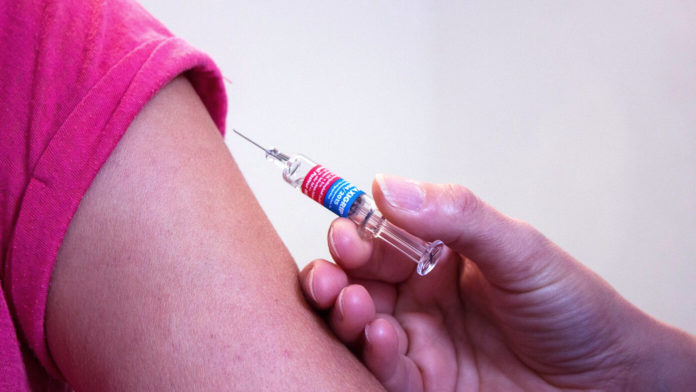About a quarter of all Canadian children are unvaccinated or under-vaccinated, and that leaves the door open to outbreaks of preventable infectious diseases like measles. But not every parent who doesn’t vaccinate their children is an anti-vaxxer.
There are three main obstacles to complete vaccination, and vaccine confidence is only one of them. While the effort to build trust in vaccine safety and efficacy is necessary work, complacency and convenience are also significant factors.
Focussing too heavily on anti-vaxxers represents a missed opportunity to improve vaccination rates in people who have no strong anti-vaccine beliefs, according to Dr. Shannon MacDonald, assistant professor of nursing at the University of Alberta.
The irony of the sweeping success of vaccines is that today, many people don’t remember the tragedies of the pre-vaccine era. It makes it easy to be complacent and put other priorities ahead of staying on top of the recommended vaccination schedule.
This is a particular concern for parents with high demands on their time just to make ends meet. It can be nearly impossible to fit in appointments amidst inflexible hours at work. They may also face a frequent need to move their households, or live in rural areas with poor access to vaccinations.
Those competing demands won’t go away with improved education, and anti-vaxx stigma for being behind schedule only heightens barriers to access. And if their socioeconomic status forces people to live in closer quarters with their neighbours, that also makes them more vulnerable to infections to begin with.
We can also do more to reach out to young adults who made not even know they are not vaccinated. Language barriers may mean that immigrants don’t know that vaccines are available to them, or how to get them. Many older adults also don’t know about newer vaccines, or may be behind on their booster shots. A fragmented system to document immunization history also makes it harder to track who needs them and when.
Helping more people get convenient and affordable access to vaccines places the target on areas where we can have the biggest immediate impact. They need to be physically available at convenient times, and in appealing locations with staff who understand the cultural needs of the people they serve. A centralized vaccination registry would also help track immunization histories.
Vaccine hesitancy is a topic that has polarized Canadians, but it’s also a complex problem that will require different tools to target different people. Removing barriers to access will help more people and families who want to get vaccinated stay up to date with their immunizations.








































